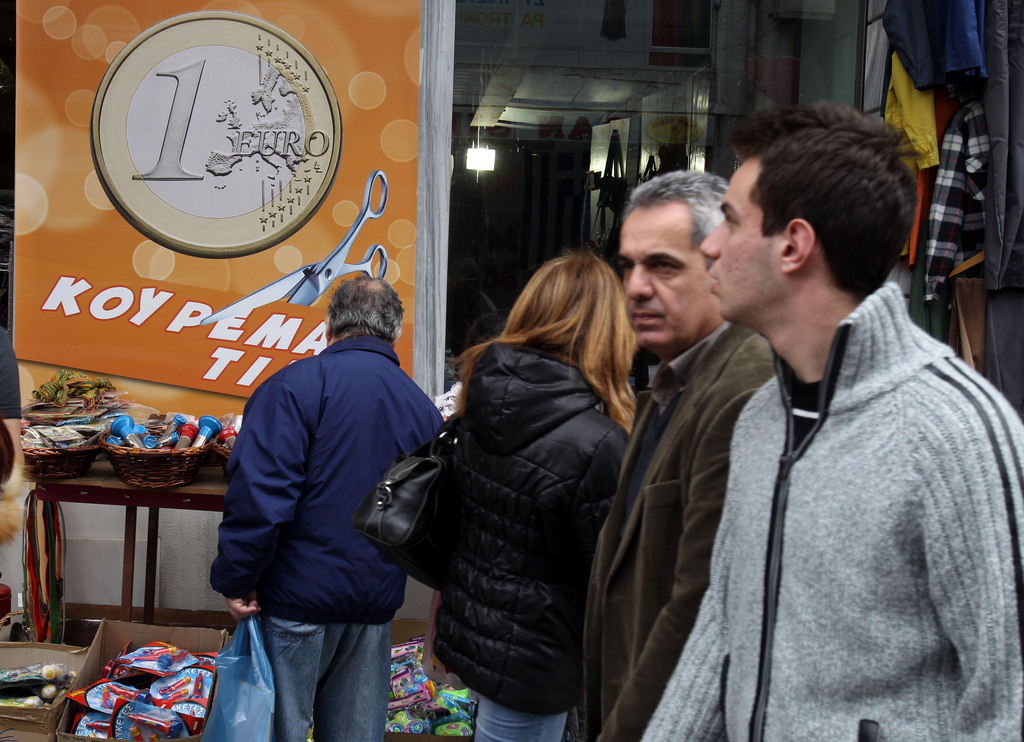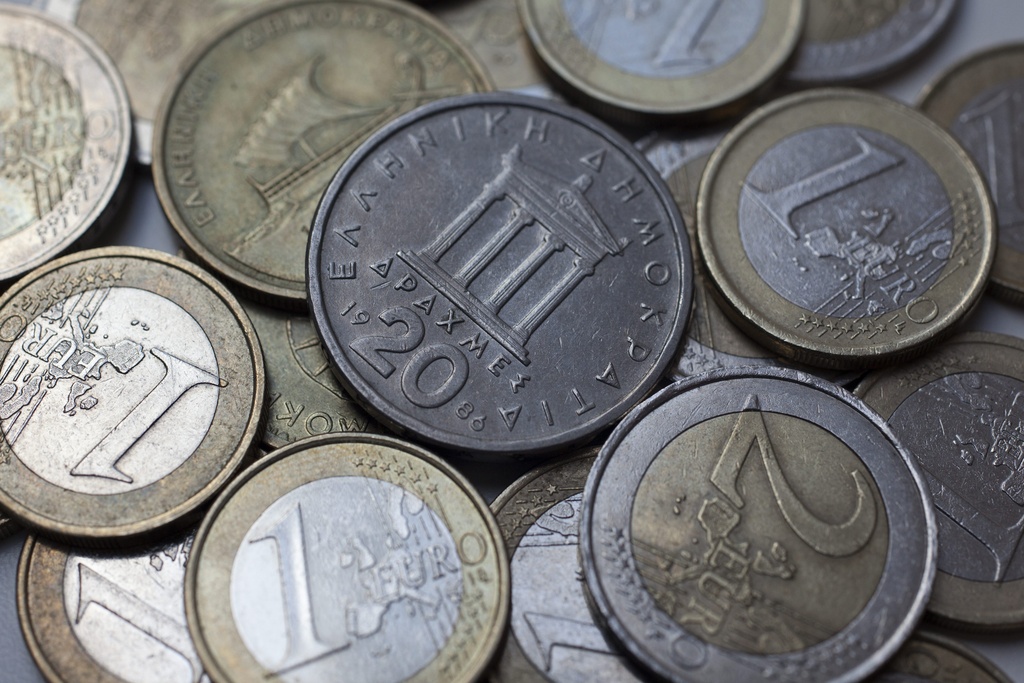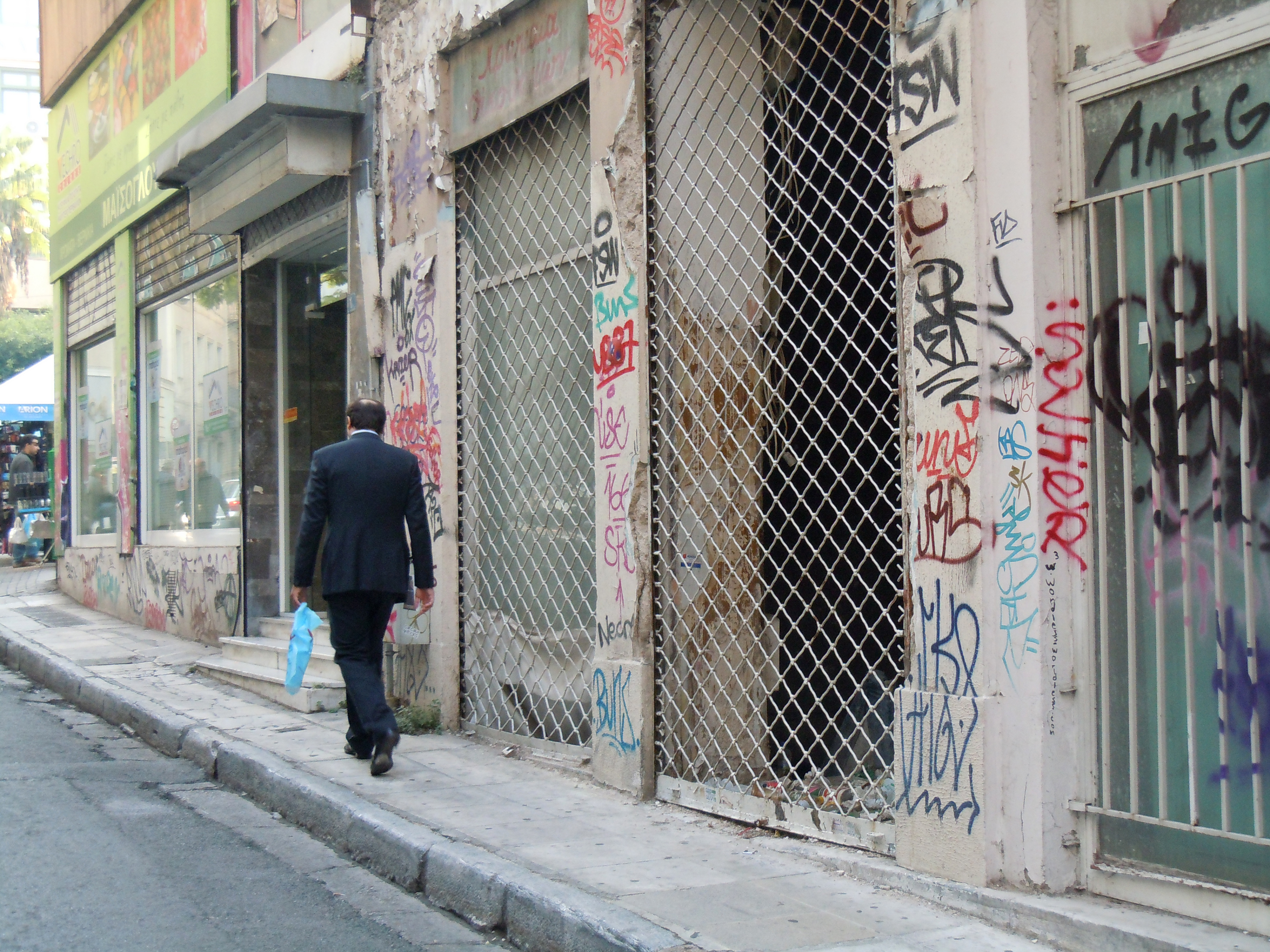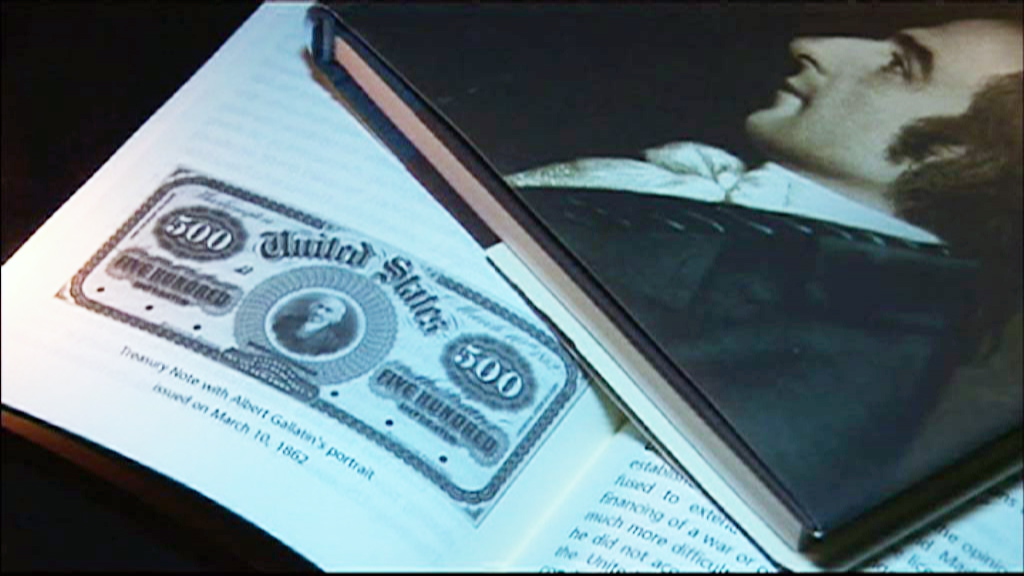Greek turmoil piles pressure on franc defence

Continued fears that Greece could decouple from the eurozone have placed Swiss exporters, the tourism industry and the country’s central bank on alert to further strengthening of the franc.
A government taskforce is looking at additional measures to halt the rise of the franc, prompting rumours of taxes on foreign deposits and even a relaxing of the Swiss National Bank’s (SNB) SFr1.20 franc-euro exchange rate floor.
“The situation in the last few weeks has become worse and much more uncertain,” SNB President Thomas Jordan told the SonntagsZeitung this week. Jordan, who is on the taskforce, would not elaborate on specific measures and maintained the central bank’s commitment to defending the SFr1.20 floor.
Greek voters will elect a new government on June 17, the make-up of which could determine the future of the nation’s currency. A return to the drachma would expose European banks to further losses on Greek debt and raise the spectre of panic spreading to other economies.
In May, it was revealed that the European Union had been holding talks with member states on how they are planning to deal with a Greek exit from the eurozone, should it arise.
In such a scenario, the safe haven franc would become more attractive to investors, testing the SNB’s capacity to defend its SFr1.20 exchange rate floor.
“If Greece exits the euro we would expect to see further depreciation pressure on the euro,” Julius Bär bank chief economist Janwillem Acket told swissinfo.ch. “The SNB would then have to act forcibly enough to dissuade speculators from attacking their policy.”
History’s warning
Having spent SFr17.8 billion ($18.6 billion) last year defending the exchange rate floor, the SNB could be forced into an even bigger wholesale purchase of euros if the Greek problem escalates.
That would threaten the type of rampant inflation last seen in the 1980s after the SNB had acted in a similar way to peg back the franc’s value against the deutsche mark.
Despite Swiss industry and unions calling on the SNB to devalue the franc further, some observers believe that the threat of inflation could force the central bank to lower the exchange rate floor to allow the franc to appreciate more against the euro.
History would also appear to weigh against the effectiveness of taxes being placed on foreign deposits. Such levies were imposed without success in the 1970s in the fight against the weakening deutsche mark.
Investors might be willing to pay such a tax for the sanctuary of a safe haven currency that would shield their fortunes from erosion. Domestic Swiss taxes would also not prevent people from opening up franc denominated accounts abroad.
Outside forces
The fate of the exchange rate does not rest with the Greek election alone. A Greek exit from the euro is far from certain, according to Daniel Kalt, chief economist at UBS Wealth Management, but if it does happen then EU policy would need to prevent problems spreading to other southern European countries.
“If Greece leaves the euro then it could trigger bank runs and the exit of other peripheral countries,” Kalt told swissinfo.ch. “There would need to be a really strong reaction from European policy makers to prevent a contagion.”
The EU’s reaction to the Greek election could be outlined at a summit to be held at the end of June.
“We could see a lot of tension in the markets in the last two weeks of June,” said Acket. “It could be a tough period for the SNB if no solution to the Greek problem has been found.”
Indirect consequences
Switzerland does not have much direct exposure to Greece. By the end of 2010, the exposure of Swiss banks in Greece was SFr2.37 billion ($2.47 billion) out of total global foreign assets of SFr1.4 trillion.
Exports to Greece from Swiss electronic engineering and machine building industries totalled just SFr1 billion last year, against SFr68.5 billion worldwide, according to the sector’s umbrella group Swissmem.
But further pressure on the franc could spell disaster for Swiss exporters, many of whom are already running on perilously low margins as the price of their goods inflates in their largest market, the EU.
Greece to stay or go?
Opinion is split down the middle about whether Greece will eventually opt out of the euro. UBS’s Kalt believes the embattled country will probably stay put and negotiate its debts down still further.
But even if the immediate Greek crisis dies down, the franc will remain under pressure for some time to come as other southern European countries – most notably Spain and Portugal – grapple with their own debt issues.
“Portugal will need a second rescue package next year, but the big issue is Spain because its banking sector is under such stress,” he told swissinfo.ch. “There is a long road ahead of us until this crisis is fully resolved.”
Greece is the sick man of Europe, mired in so much debt that it cannot pay back what it owes without bailouts from the European Union and the International Monetary Fund.
Years of rampant state spending and inadequate tax receipts were exposed when the global financial crisis dried up the supply of cheap credit.
In the last two years Greece has been forced to accept €240 billion (SFr288 billion) in bailouts.
But the loans came attached with the condition that Greece introduced austerity measures, laying off public sector workers and slashing pay.
Faced with growing public opposition to the cuts, Greek Prime Minister Lucas Papademos stepped down in April after a brief six month tenure.
Greek national elections on May 6 failed to bring about a clear new leadership, with several attempts to form a coalition ending in failure.
A new election will be held on June 17 with both pro- and anti-euro parties apparently neck and neck. The result of the election will go a long way to deciding if Greece stays in the euro or not.
Other EU member states have been told to prepare for a Greek exit with many companies and banks preparing for such an eventuality.

In compliance with the JTI standards
More: SWI swissinfo.ch certified by the Journalism Trust Initiative






You can find an overview of ongoing debates with our journalists here. Please join us!
If you want to start a conversation about a topic raised in this article or want to report factual errors, email us at english@swissinfo.ch.